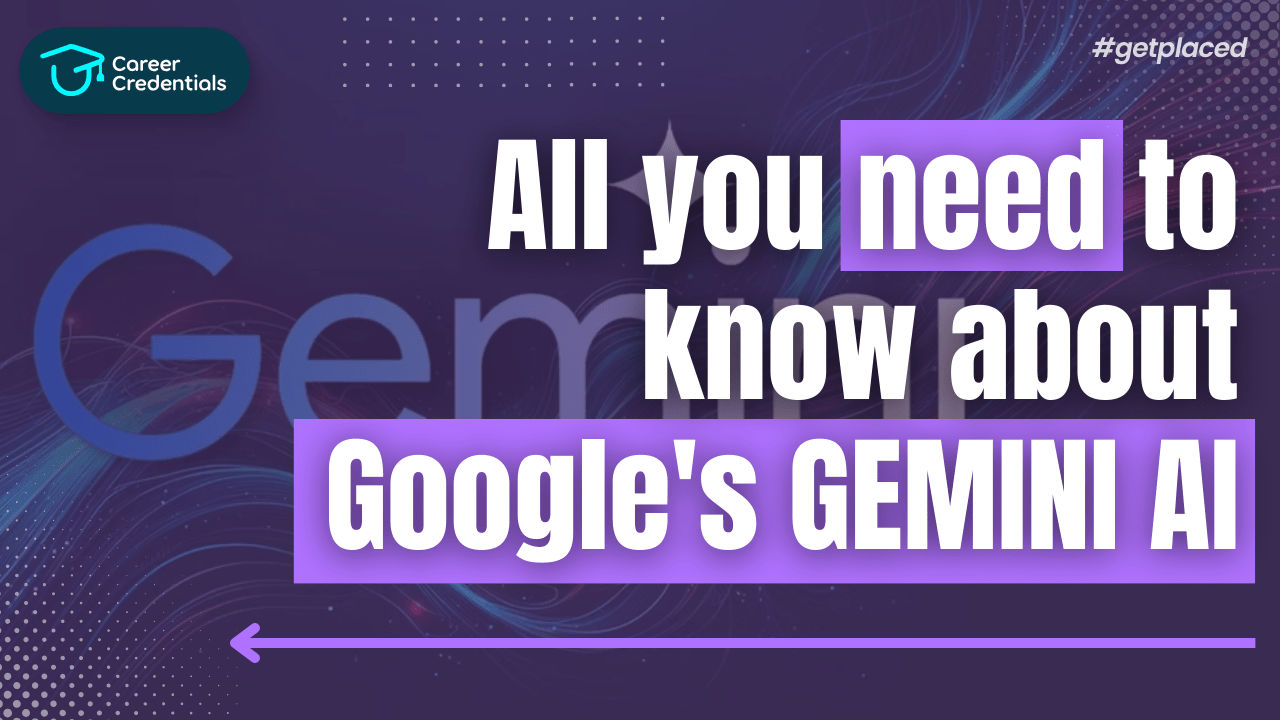All you need to know about Google Gemini AI

What is Google Gemini?
For the past year, the world has seen great innovations in the field of artificial intelligence. Each company has been supercharged and competing head-to-head by launching new and more powerful AI models. Google is one of the companies that has recently launched its AI model named Gemini. Google Gemini is a family of multimodal artificial intelligence (AI) large language models that have capabilities in language, audio, code and video understanding.
Gemini 1.0 was announced on Dec. 6, 2023, and was built by Alphabet's Google DeepMind business unit, which is focused on advanced AI research and development. Google co-founder Sergey Brin is credited with helping develop the Gemini large language models (LLMs), alongside other Google staff.
Gemini integrates natural language processing capabilities, providing the ability to understand and process language, which is used to comprehend input queries, as well as data. It also has image understanding and recognition capabilities that enable parsing of complex visuals, such as charts and figures, without the need for external optical character recognition (OCR).
Gemini also has broad multilingual capabilities, enabling translation tasks, as well as functionality across different languages. For example, Gemini is capable of mathematical reasoning and summarization in multiple languages. It can also generate captions for an image in different languages.
Unlike prior models from Google, Gemini has native multimodality, meaning it's trained end to end on data sets spanning multiple data types. The multimodal nature of Gemini enables cross-modal reasoning abilities. That means Gemini can reason across a sequence of different input data types, including audio, images, and text.
For example, the Gemini models can understand handwritten notes, graphs, and diagrams to solve complex problems. The Gemini architecture supports directly ingesting text, images, audio waveforms and video frames as interleaved sequences.
What can Gemini do?
The Google Gemini models are capable of many tasks across multiple modalities, including text, image, audio and video understanding. The multimodal nature of Gemini also enables different modalities to be combined to understand and generate an output.
Tasks that Gemini can do include the following:
- Text summarization: Gemini models can summarize content from different types of data.
- Text generation: Gemini can generate text based on a user prompt. That text can also be driven by a Q&A-type chatbot interface.
- Text translation: The Gemini models have broad multilingual capabilities, enabling translation and understanding of more than 100 languages.
- Image understanding: Gemini can parse complex visuals, such as charts, figures and diagrams, without external OCR tools. It can be used for image captioning and visual Q&A capabilities.
- Audio processing: Gemini has support for speech recognition across more than 100 languages and audio translation tasks.
- Video understanding: Gemini can process and understand video clip frames to answer questions and generate descriptions.
- Multimodal reasoning: A key strength of Gemini is multimodal reasoning, where different types of data can be mixed for a prompt to generate an output.
- Code analysis and generation: Gemini can understand, explain and generate code in popular programming languages, including Python, Java, C++ and Go.
Is Gemini more powerful than ChatGPT?
When comparing Gemini with ChatGPT, many experts talk about parameters. Parameters in an AI system are the variables whose values are adjusted or tuned during the training stage and which the AI uses to transform input data into output. In broad strokes, the more parameters an AI has, the more sophisticated it is.
ChatGPT 4.0, the most advanced AI in operation, has 1.75 trillion parameters. In contrast, Gemini is reported to exceed this number — with reports claiming it will have 30 trillion or even 65 trillion parameters.
But the power of an AI system is not just about big parameter numbers.
A study by Semi Analysis assures us that Gemini will “smash” ChatGPT 4.0. Semi Analysis anticipates that by the end of 2023, Gemini could surpass ChatGPT 4.0 by a factor of five, potentially 20 times more powerful.
Future scope of Google Gemini
With Gemini, Google hopes to match or surpass GPT-4, before it gets left behind for good. After initially talking about the model in May 2023, the search giant released Gemini on December 6, 2023.
Google has confirmed that Gemini will come in three different sizes, namely Nano, Pro, and Ultra. The smallest one, Gemini Nano, is a perfect fit for generative AI on the go and will come to Android devices starting with the Pixel 8 Pro. The Gemini Pro model, meanwhile, will come to more Google services like Gmail and Docs in 2024.
For now, the easiest way to try Gemini’s capabilities is via the Bard chatbot. According to Google, Bard’s December 2023 update is the largest yet and integrates Gemini Pro with “advanced reasoning, planning, understanding and more”. We’re also waiting on the launch of Assistant with Bard, which should enable back-and-forth verbal conversations with Gemini for the first time.
Confused About Your Career?
Don't let another opportunity pass you by. Invest in yourself and your future today! Click the button below to schedule a consultation and take the first step towards achieving your career goals.
Our team is ready to guide you on the best credentialing options for your aspirations. Let's build a brighter future together!
Empower Yourself. Elevate Your Career at Career Credentials Where Education meets Ambition.
